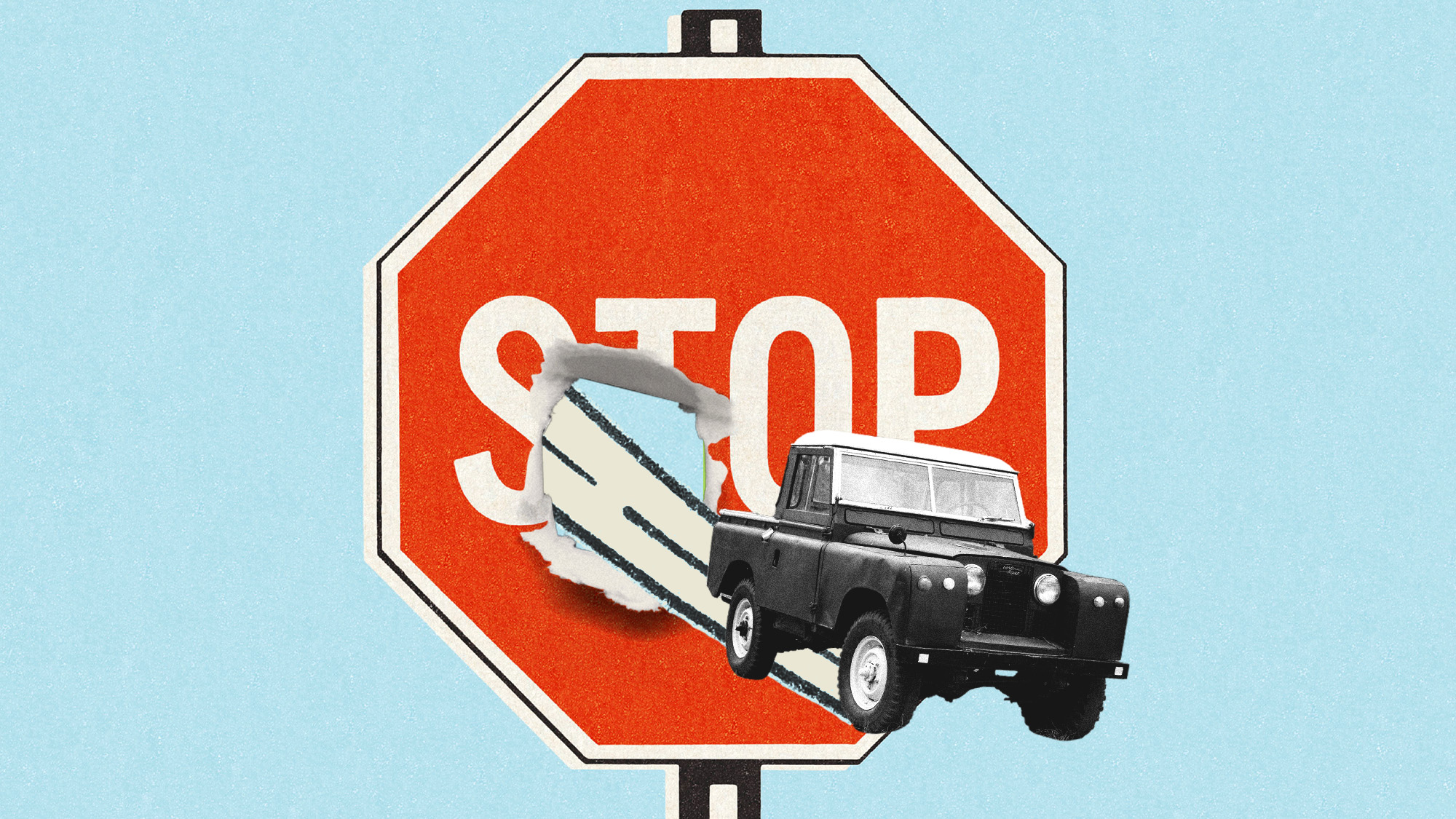Could the financial crisis happen again?
It's been 10 years ...

The smartest insight and analysis, from all perspectives, rounded up from around the web:
"Everything solid in the American economy turned out to be built on sand," said George Packer at The New Yorker. The collapse of the investment bank Lehman Brothers 10 years ago presaged a crisis that had "a lasting impact on American political life." Following Lehman's failure, the Federal Reserve stepped in as banks such as Citigroup seemed on the edge of collapse, and corporate giants like General Motors and Chrysler teetered. "The speed and scale of destruction were so breathtaking that only the direst analogies seemed adequate." A combination of reckless lending, Wall Street gluttony, blatant fraud, lax government oversight, and deregulation led to the catastrophe. Millions lost their jobs and retirement accounts as the financial crisis gradually became a foreclosure crisis, said Joe Nocera at Bloomberg. As home values slipped, owners with subprime mortgages often discovered they owed more to their lender than their home was worth; foreclosures hit 3.2 million in three years at the peak of the crisis. Wall Street arrogantly derided those who subsequently lost their homes as having themselves to blame. But many were simply economically vulnerable, "one financial setback away from trouble."
"President Trump's election was a direct result of the financial crisis," said Andrew Ross Sorkin at The New York Times. The bitterness now infecting American politics was fed by "financial despair" and exacerbated by the glacially slow recovery. The public has grown increasingly distrustful "of the very idea of experts and expertise," and this wariness ushered in new political movements. Those who lost faith in the government drifted to the Tea Party, and those with a disdain for corporate America drifted to a surging socialist left. When disaster hit, said Glenn Hubbard at The Wall Street Journal, the government's concern for ordinary people facing unemployment and foreclosure was "tepid." It should have refinanced mortgages en masse. Instead, policymakers were more interested in bailing out the banks. That response drained the public's pocketbook and confidence.
The Week
Escape your echo chamber. Get the facts behind the news, plus analysis from multiple perspectives.

Sign up for The Week's Free Newsletters
From our morning news briefing to a weekly Good News Newsletter, get the best of The Week delivered directly to your inbox.
From our morning news briefing to a weekly Good News Newsletter, get the best of The Week delivered directly to your inbox.
Actually, it could have been much worse, said Matt O'Brien at The Washington Post. "If nothing had been done, almost every major bank would have collapsed, and otherwise solvent companies wouldn't have been able to borrow the money they needed to meet payrolls or manage the rest of their day-to-day operations." The Fed would have had to replace key parts of the financial system "just so that we could have continued to have an economy." The problem is, millions of Americans haven't experienced the recovery, said Lydia DePillis at CNN. Homeownership rates have only now slowed their downward spiral. Men's workforce participation is as low as it's ever been. And thanks to the lingering drought in mortgage and construction lending, we're still enduring a housing affordability crisis. Congress has already loosened most financial rules "put in place to fix and prevent the problems" of 2008. Combine that with a surging national debt and budget deficit and it's not hard to envisage how another financial crisis could be closing in.
A free daily email with the biggest news stories of the day – and the best features from TheWeek.com
-
 Zimbabwe’s driving crisis
Zimbabwe’s driving crisisUnder the Radar Southern African nation is experiencing a ‘public health disaster’ with one of the highest road fatality rates in the world
-
 The Mint’s 250th anniversary coins face a whitewashing controversy
The Mint’s 250th anniversary coins face a whitewashing controversyThe Explainer The designs omitted several notable moments for civil rights and women’s rights
-
 ‘If regulators nix the rail merger, supply chain inefficiency will persist’
‘If regulators nix the rail merger, supply chain inefficiency will persist’Instant Opinion Opinion, comment and editorials of the day
-
 The pros and cons of noncompete agreements
The pros and cons of noncompete agreementsThe Explainer The FTC wants to ban companies from binding their employees with noncompete agreements. Who would this benefit, and who would it hurt?
-
 What experts are saying about the economy's surprise contraction
What experts are saying about the economy's surprise contractionThe Explainer The sharpest opinions on the debate from around the web
-
 The death of cities was greatly exaggerated
The death of cities was greatly exaggeratedThe Explainer Why the pandemic predictions about urban flight were wrong
-
 The housing crisis is here
The housing crisis is hereThe Explainer As the pandemic takes its toll, renters face eviction even as buyers are bidding higher
-
 How to be an ally to marginalized coworkers
How to be an ally to marginalized coworkersThe Explainer Show up for your colleagues by showing that you see them and their struggles
-
 What the stock market knows
What the stock market knowsThe Explainer Publicly traded companies are going to wallop small businesses
-
 Can the government save small businesses?
Can the government save small businesses?The Explainer Many are fighting for a fair share of the coronavirus rescue package
-
 How the oil crash could turn into a much bigger economic shock
How the oil crash could turn into a much bigger economic shockThe Explainer This could be a huge problem for the entire economy